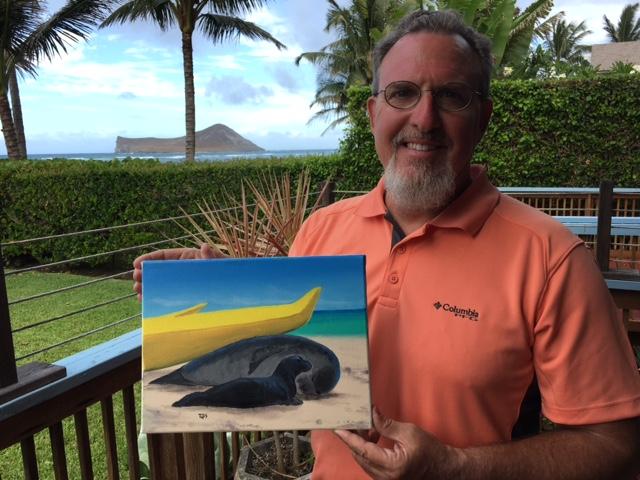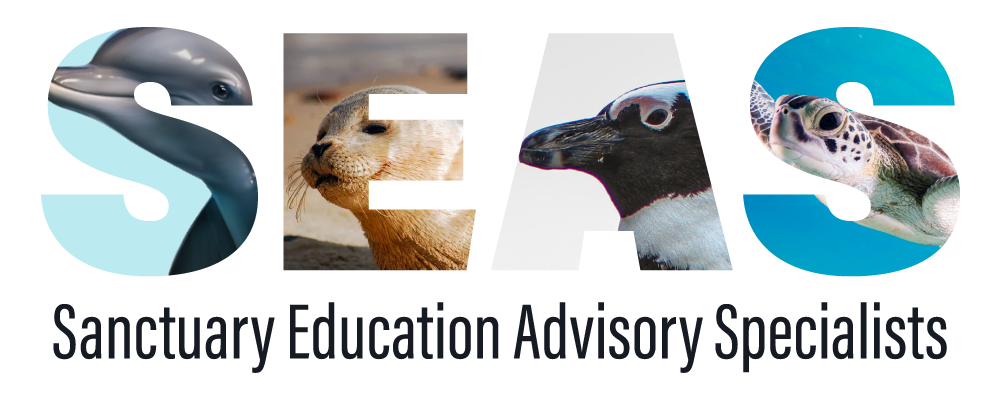
David Schofield has worked in the marine mammal field for 30 years. He holds a Master of Science degree from University of Maryland with his thesis focusing on neonatal behavioral development of bottlenose dolphins.
He was a cetacean and pinniped trainer at the National Aquarium in Baltimore and through the Wallops Island Marine oversaw a university student based wild dolphin photo ID. But his greatest contribution at the Aquarium was his fourteen years of David’s marine mammal experience comes from his work in “marine mammal rehabilitation” where had worked to care for stranded seals, whales, and dolphins for the goal of reintroduction to the wild. He has worked with the USCG and private air craft charter companies to direct over 30 cetacean and pinniped transports from Maine to Florida on the east coast and later in his career in Hawaii, across the Main Hawaiian Islands.
For the past 15 years, David has worked as the Marine Mammal Response Program Manager for NOAA’s Pacific Islands Regional Office (PIRO) overseeing marine mammal response in Hawaii, Guam, Commonwealth of Northern Mariana Islands, and American Samoa with a majority of his job relating to monk seal response in the Main Hawaiian Islands.
He works in a variety of important ways for resource protection and partnership building objectives. He has been the Incident Commander for complex and high-profile marine mammal response efforts carefully juggling often conflicting priorities of legal compliance, animal welfare, staff and partner needs, and public perception in marine mammal management efforts. David has also served as a key point-of-contact with law enforcement as an expert behavioral witness for marine mammal harassment cases. The world of marine mammal response work, in which David is a regional leader, is highly emotionally-charged, very technically complex and physically demanding.
David understands the important role community stewardship plays in resource management. While at working at PIRO he has established a network of marine mammal responders and Hawaiian monk seal responder volunteers across the main Hawaiian Islands. He has also worked closely with leading Hawaiian cultural and spiritual practitioners who have included Hawaiian spiritual practices during marine mammal stranding incidents and providing cremated remains for respectful interment into the ocean or land area of the stranding response.
He has led volunteer groups in marine mammal response and rehabilitation efforts across the Northeast of the US, Florida, Costa Rica and Hawaii. In Costa Rica, he collaborated with Representatives from the National Aquarium in Baltimore and a Costa Rican turtle conservation NGO to perpetuate the mindset of sustainable ecotourism, transitioning leatherback turtle egg poachers from the consumptive utilization of marine resources to non-consumptive, non-extractive use resulting in environmental conservation and improvement of community welfare.
In addition, for all responses, he promotes safety for the people involved and the animals as the number one priority through the use of efficient cross-cultural communication.
David has been involved in Bottlenose Dolphin Health Assessment projects led by the NOAA Fisheries Service which includes capturing wild dolphins for health examinations, satellite tagging and release.
Species of marine mammals that David has encountered and worked with for weeks to months or years in a rehabilitation setting:
- Cetaceans: Atlantic offshore and inshore bottlenose dolphins, pygmy sperm whales, harbor porpoises, striped and spotted dolphins, a neonatal pilot whale, and a an adult beaked whale.
- Pinnipeds: Hawaiian monk seal, harbor seals, harp seals, grey seals.
- Other: Sea turtles and a wayward Florida manatee that wandered up the Chesapeake Bay.
